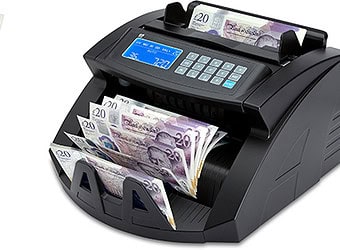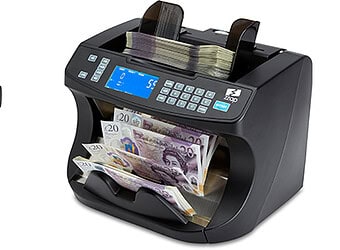Starting a business can be the key to your dream life or be the bane of your life. Do it right and you can achieve wealth, success and freedom. Do it wrong and you could end up owing people, losing your social life and being the failure you don’t want to be. Having gained a 1st class honours in business and enterprise and also establishing a successful business I can relate to the disparity between academic literature and the reality. Therefore my main aim is to give you my opinion of just some of the cold hard facts and get right down to the basics of starting a business.
The Vision
Before we delve into the details of setting up a business. First and foremost you need a vision. You need to know what it is you want to start and what you want it to become. I cannot emphasise this enough. A vision gives you guidance and is at the heart of all the decisions you make.
Make sure your vision of the business is unique and is doing something clearly better than the competition and preferably something the competition cant copy. In my experience you also need a strong brand that people will buy into and give your business an identity. An identity that is inherently linked with your vision.
Don’t be mistaken that because your vision for the business should be unique, that you should invent something. Some of the most successful business in the world have taken an existing product or service and simply made it better.
Market research
Without market research you are blind. You cannot see who your customers are, how many of them there are and whether they will be interested in your product. Of course, you can learn some of this information once you establish the business but it will be too late by then and you’re more likely to fail.
Firstly find out the size of your target market. These are the people you will be targeting and it’s important to know how many of them there really are. If there aren’t enough customers, there isn’t enough need for the product and you will fail.
A simple method I use is;
- Research and make an informed decision on what will be the average customer spend on your products.
- Work out how many customers you need per day/month/ year to make a worthwhile profit.
- Work out the size of your target market within a radius of the possible locations (who you think will travel to your business) and couple that with footfall statistics.
From this information you will be able to get a picture of whether your market can support your business and what percentage of your target market you need to sell to in order to be successful. It is also a good way to determine what location would offer the most customers.
This is a huge topic in itself, which you can find an endless amount of information however a general rule you don’t come across often is it to be pessimistic with figures. I sometimes half my target market then work from those figures. If you find you are being pessimistic with figures and you still can support your business, you’re on to a winner. You never know what will happen to your market, and having a buffer can be the difference between success and failure.

Competitors
Competitor analysis is normally left as part of the market research however do not be fooled by its low priority. Your competitors will shape your business in practically every way. They are a constant threat, and as I mention to many budding entrepreneurs, if your not always progressing, you’re falling behind. I say this because of competition.
When starting a business you need to know everything about the competition. Absolutely everything. You need to know your competition as much as you know your own business. What do they offer, what is their customer service like, what are their prices, what marketing do they use, what’s their turnover/profit etc.
This means going undercover. Visit their shop frequently, enquire on price lists, talk to their customer advisors and obtain as much information from them and do it often. What this means is that you can get an accurate picture of the competitor landscape so you can see the opportunities and threats in your market. Grab the opportunities and protect yourself from the threats. This strategy alone can be priceless. For example companies such as Pepsi will base a majority of their marketing strategy on Coca Cola’s marketing activities. Too many businesses focus too much on their own business rather than focusing on external factors and as a result they get left behind.

Marketing
Marketing is the way you get your customers to know what your business is and what it can do for them. In a nutshell, you need to get to know the most cost-effective way to convince potential customers to buy your products.
Literature will tell you that you need to focus on your target market and do this by marketing through different mediums such as magazines, flyers, website. This is all true and effective. However I would like to emphasise being different.
As Richard Branson says “Don’t think what’s the cheapest way to do it or the what’s the fastest way to do it… think what’s the most amazing way to do it”. Take your idea and make it as unique and engaging as it can be. For example take a car showroom. “Try to think outside the box” as Arnold Schwarzenegger says. For example get all your most high-priority customers and invite them on a free track day to experience their prospective car in a new light and even make it a regular event. It engages the customers and forms a unique relationship with them. It also can lead to great PR opportunities.
Start up capital
Starting a brick and mortar business has the burden of fixed costs and high capital costs i.e leasing, utility bills, renovation etc. This means 2 things: you need to hit the ground running i.e. you need to make profit as quickly as possible or you will default on your costs. And secondly you need cost effective funding that’s not going to cost you the earth.
When figuring how much start-up capital you need, make a detailed list of absolutely everything you require. Attention to detail is key. For example if you’re a restaurant business, make sure you account for the smallest of costs i.e. napkins or candles. The more thorough you are the less likely you will be hit by unforeseen costs which can ultimately lead to poor cash flow, which is the number one reason for business start up failures.
Once you have your capital figure, most people would say just borrow that amount. What I advise is to borrow more if possible, say 1 – 10% more depending on how confident you are with your capital figure. You don’t want to be in the situation where you have miscalculated your start capital (which is very likely) and you can’t finish the project to a good standard because you’re out of cash. Don’t settle. Make it the business you see in your vision, not subpar.
Someone once told me “the best mortgage is no mortgage”. There are many finance options available in today’s market, however to borrow money costs in some form or the other. As general rule you should always try to grow a company organically (without external funding). It’s starts your company in a healthy financial situation albeit you may not have as much capital but it reduces the risk and pressure of borrowing money.
External funding however normally is the only way for most of us. If you go down this root, be smart. Discover all the finance options available starting with government-backed schemes. The government offers grants and subsidised funding which dramatically reduces the costs of borrowing. If government funding is not available then make sure you research all your finance options and negotiate the best rates.
Premises & Operations
Your business premises will be your home for the coming years and will be where everything takes place. Location is nearly always the most vital factor when considering a premise. You will be looking at different factors depending on the business your establishing i.e. an import/export warehouse will need a different location to a hairdressers. Get the location right and you can afford to make some other mistakes along the way. For example a poorly run pop-up stall next to a high foot fall area is likely to make more money than a very well run pop-up stall in a low foot fall area.
One thing I would like to highlight which isn’t mentioned often is if you can’t find the right place. It is all good saying what the best location is however theory is different to practise. I would say if your 80% sure it’s the right place, go ahead. If you wait for 100% sure, you will be waiting your whole life. If you’re not sure or your gut instinct says otherwise, wait for the right place. This can be very frustrating when you have the momentum behind you then you have to continue with your day job, however you have to tell yourself, what would you rather a failed business or to wait longer?
In terms of the actual building make sure it fits your vision. Its all about achieving a balance between your vision and over-spending. Your aim should be to achieve your vision with the least amount of cost and to be within budget. Don’t under spend and don’t overspend. Easier said than done. What I recommend is to evaluate everything in terms of business, not what you like or what your partner likes, but what will the customer like.
You are not making decisions for your home; you are making every single decision based on what will increase profit. Thinking this way is an effective attribute for success.

Operations
Operations I define as the day to day running of the business. Operations should be about efficiency. Time is litterly money. In a restaurant business bringing the food out late means less customers can be served in a given period of time translating to less sales. I wont bore you with more examples. In essence the balance here is with efficiency and customer satisfaction. To be very efficient and offer great customer service is the Holy Grail.
When you purchase equipment you should also think efficiency. Equipment such as banknote counters and coin counters & sorters can count up to 27x faster than you can. Even if you deal with a small amount of cash, this purchase is a no brainer. Companies such as ZZap (www.zzaponline.com) have revolutionised this industry so small companies can now afford to purchase cash counting machines. POS systems are also a great time saver and have become a must have item in today’s society.


Finance
With starting a business come a lot of formalities. There are some formalities that you should get right from the start and some that are over emphasised. Lets start with some mandatory things. The accounts. Don’t ever think you’ll get away without getting involved in the figures. To be involved with the accounts is to keep your finger on the pulse of your business and enables you to make more informed decisions. It is also required by law. I’m not going to delve into the details of how to manage your finance; I’m going to tell you what people don’t tell you. If you’re not a ‘numbers’ person you will find the formalities of the accounts challenging. You should not learn it on your own. You need to pick an accountant you trust, and go through how the daybooks and accounts work. Figure out your responsibilities and there’s. Learning the accounts is a steep learning process so you need an accountant who is available at a calls notice. Accounts software packages will offer the world but if you don’t know how to use them they are useless and often unnecessary. Finally something that I wished someone told me at start-up, is keep on top of the accounts and paperwork, the worst thing you can do is leave the work for a later date, it becomes more complex than it already is and you would have wished a month from now that you started today. Notice how I don’t say give all the figures to your accountant to sort out. You need to have a grip of our finances yourself for so many reasons. In essence the financials of your business is the only real measure of how well you are doing. It is not opinion based, it is fact. It teaches you to face reality and act accordingly. So to keep my message succinct, get an accountant that will act almost as mentor, learn how to manage the finances before you launch your business and finally use the accounts as a way to monitor your business.
Business sense
This article as I mentioned in the introduction is not an exhaustive list of what should be done to start a brick and motor business. It is getting down to the basics. All the rest you can find on numerous websites. So this brings me to business sense.
There is so much information to process while running a business. If you think you will be outsourcing lots of work to other people, and this will make your job easy you are wrong. You may have staff, accountants, web developers, contractors etc but you will have direct what they do. They do not know your vision and they often want to get the work done in the quickest time frame for the least amount of money. This is exactly against what you’re trying to achieve. That’s why when your delegating you will really need to take a ‘hands on’ approach with everyone in your business or you will slowly drift away from your vision and into mediocre. Do not be afraid to get tough with your staff and be the boss they are afraid of. Although being liked is good attribute, in the beginning stages you need to take charge of the situation and show whose boss.
Since you are where the buck stops and you will be creating the direction for the business, you need business sense. Business sense is required because you will be dealing with things all the time that you are not an expert on, so you need to use business sense. Business sense to me is common sense. But then there is nothing common about common sense. You need to simply judge all your decisions based on what will generate more profit. It is such a simplistic concept but very hard in practise.
For example say you are an owner of a pop-stall and your current counter doesn’t look good anymore and is worn. Should you buy a new counter for your pop-up stall that costs hundreds of pounds? Some decisions will be simple, but a question like this favours a business mind. I choose a question like this purposely since there seems to be no right or wrong answer. But there is. One decision will make more profit than the other, however negligible that may be. You need weigh up the factors for and against and you need use common sense. How important is the look of the counter to customers? Will customers not be likely to come back again because the counter doesn’t look good, but the food was still great? You will be faced with trivial decisions like this all the time as well as very important decisions but the same criteria should be at the forefront of your mind, ‘what will generate more profit’. This to me is business sense and will prove invaluable to you when starting up your business.
Last word
I have learnt that often the most obvious decision or the decision you advised to do is often the wrong decision. This obviously is not always the case however I follow the mentality of ‘see where the crowd goes and move the opposite way’. If I were to have listened to the people around me, even my closest friends and family I would have failed or not even attempted to start my business. And it doesn’t change after you have set up your business either. You have to carve your own way.
You may think the mind of many is better than your mind on its own. You may think other people are clever than you. You may think that other people’s vast experience makes them more qualified than you. But tell me this, who shares the same vision as you? The true answer is nobody. In many ways you are the most qualified person to make the decision. Consider others opinions but always make the decision that feels right for you.












